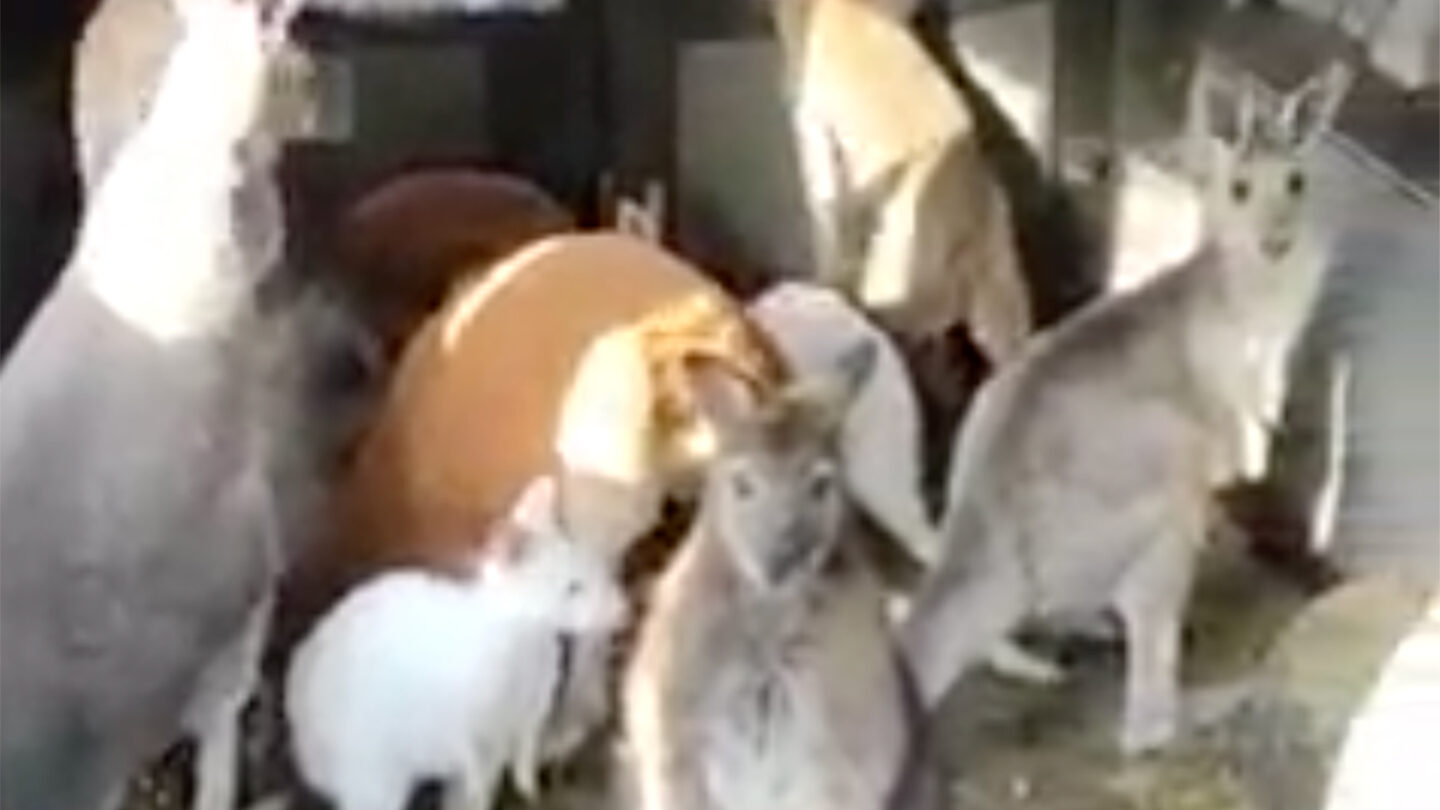A Ukrainian man is garnering global praise after he drove a van full of marsupials out of a shelled zoo to safety — but they weren’t the only animals to be rescued from this particular facility in recent weeks.
The Feldman Ecopark in the hard-hit city of Kharkiv is working to evacuate all of its animals after weeks of deadly attacks by Russian forces. It’s been posting updates to its Facebook page in Ukrainian and English and shared an uplifting one on Saturday: A group of kangaroos taken out of the park two days earlier had finally made it to safety.
“This is very nice, because their enclosures, unfortunately, were repeatedly shelled,” park officials wrote. “We believe that now they will be fine!”
Video of the driver, speaking and pointing the camera toward the animals huddled in the back of the hay-filled van, took off on social media. Ukraine’s foreign ministry later shared it on Twitter.
Both the ecopark and the foreign ministry described the animals as kangaroos, though many Reddit users noted there appeared to be at least some wallabies in the mix.
Previous posts on Ecopark’s Facebook page detail its efforts to provide food and aid to Kharkiv residents while incrementally evacuating its animal charges. They previously said it is home to some 5,000 animals and more than 300 species.
Officials have shared maps, photos and updates showing how hard the park has been hit by Russian shelling. After weeks of continuous strikes, they wrote earlier this month that their main goal was to get as many animals as possible out of the park, which required building temporary enclosures in a safer location.
“We need to do what we have created in the Ecopark over 10 years in a few days,” they wrote in one post.
The park has sustained heavy losses in the past month. Some staff members were killed by shelling when they tried to feed animals in their enclosures. Animals who survived attacks are hungry — as food supplies are lacking and it is hard for employees to get to them for feedings — and scared, officials say.
They have not provided full tallies but have announced and mourned the casualties in individual updates. Those include nine noble deer (others ran away to a nearby forest after their enclosures were hit), at least two orangutans and a chimpanzee, four fallow deer and three Welsh goats, which the park said join a long list of victims including large cats, primates, ungulates, marsupials and birds.
But there have been success stories, too.
Three weeks ago, in a break between bombings, employees and volunteers park managed to rescue a large group of animals — including turtles, chimpanzees and cubs, gibbons, lemurs and a variety of birds — and bring them to safer locations, including their own homes and that of the park’s founder.
In separate instances, they also evacuated four orangutans, nine chimps and 22 alpacas, as well as three rare bear macaque sisters and a lion named Simba.
Another video clip shows a man who appears to be the same driver from the kangaroo video, behind the wheel of a van filled with turtles and monkeys. (The English translation of the caption says evacuating the turtles was no small feat, as they weigh some 220 pounds each.)
In one update, an employee describes saving some monkeys and another young lion. He said he wanted to take more animals but — according to Facebook’s English translation — came under fire shortly after entering the park.
In its post on Saturday, the ecopark thanked the volunteers and employers “who take risks to save animals,” as well as supportive individuals, businesses and organizations who are donating to make its rescue operations possible.
“Your support truly saves lives!” they added, pointing people to donation details on their website.
This story originally appeared on the Morning Edition live blog.
Copyright 2022 NPR. To see more, visit https://www.npr.org.
9(MDAxODM0MDY4MDEyMTY4NDA3MzI3YjkzMw004))

9(MDAxODM0MDY4MDEyMTY4NDA3MzI3YjkzMw004))









